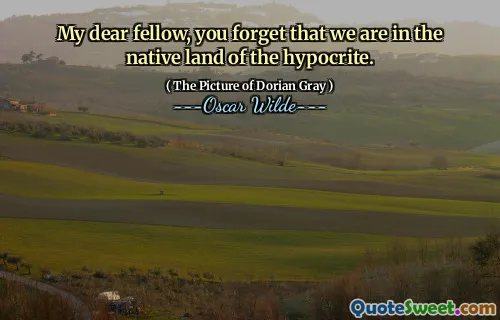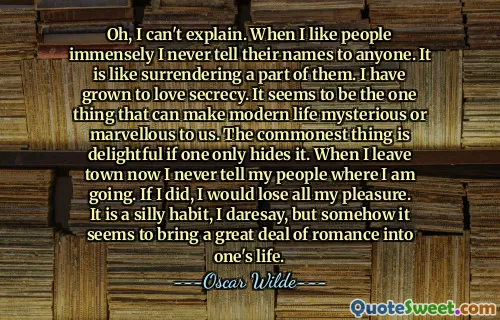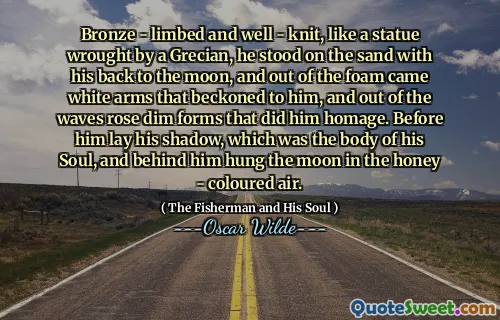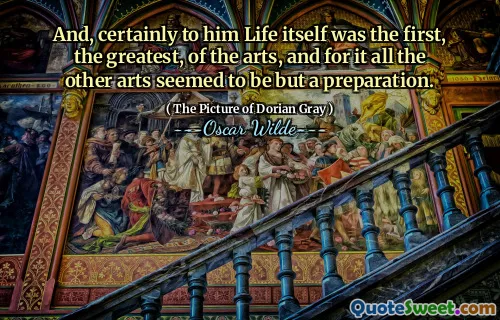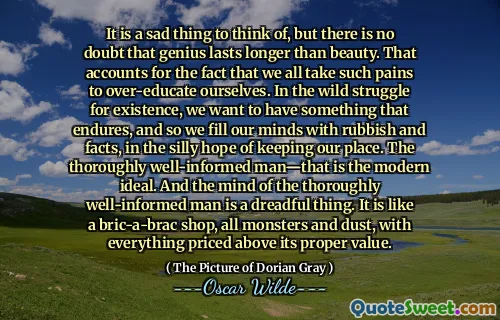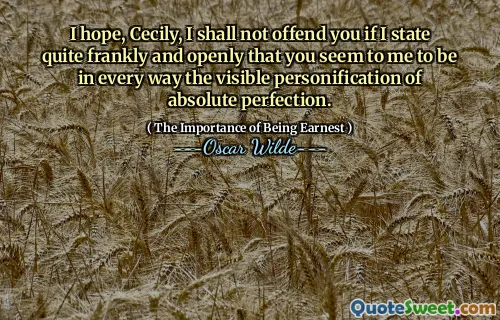Oscar Wilde was a prominent Irish writer and poet known for his sharp wit and flamboyant style. Born on October 16, 1854, he rose to fame in the late 19th century, becoming a leading figure in the aesthetic movement. His works often critiqued societal norms and celebrated individuality and beauty. Among his most famous writings are the novel "The Picture of Dorian Gray" and the play "The Importance of Being Earnest," which showcase his talent for combining humor with profound social commentary. Wilde's life was marked by a series of dramatic events, including his imprisonment for "gross indecency" due to his bisexuality. This critical period in his life profoundly influenced his later works, reflecting a deep sense of irony and melancholy. Despite the societal backlash against him, Wilde remained a proponent of artistic freedom, insisting on the importance of self-expression and authenticity. Wilde's legacy continues to resonate today, as he is celebrated not only for his literary brilliance but also for his courage in expressing his identity in a repressive society. His quotes and aphorisms remain popular, and his works are studied for their rich language and insightful critique of Victorian society. Ultimately, Oscar Wilde's impact on literature and culture endures, making him a timeless figure in the world of arts.
Oscar Wilde was a prominent Irish writer and poet known for his sharp wit and flamboyant style. Born on October 16, 1854, he rose to fame in the late 19th century, becoming a leading figure in the aesthetic movement. His works often critiqued societal norms and celebrated individuality and beauty. Among his most famous writings are the novel "The Picture of Dorian Gray" and the play "The Importance of Being Earnest," which showcase his talent for combining humor with profound social commentary.
Wilde's life was marked by a series of dramatic events, including his imprisonment for "gross indecency" due to his bisexuality. This critical period in his life profoundly influenced his later works, reflecting a deep sense of irony and melancholy. Despite the societal backlash against him, Wilde remained a proponent of artistic freedom, insisting on the importance of self-expression and authenticity.
Wilde's legacy continues to resonate today, as he is celebrated not only for his literary brilliance but also for his courage in expressing his identity in a repressive society. His quotes and aphorisms remain popular, and his works are studied for their rich language and insightful critique of Victorian society. Ultimately, Oscar Wilde's impact on literature and culture endures, making him a timeless figure in the world of arts.
More »
Today Birthdays
1955 -
Max Lucado
1946 -
John Piper
1842 -
William James
1907 -
Abraham Joshua Heschel
1887 -
Aldo Leopold
1755 -
Alexander Hamilton
1976 -
Alethea Kontis
1971 -
Mary J. Blige
1825 -
Bayard Taylor
1943 -
Jim Hightower
1885 -
Alice Paul
1923 -
Carroll Shelby
1928 -
David L. Wolper
1954 -
Kailash Satyarthi
1972 -
Amanda Peet
1946 -
Naomi Judd
1970 -
Malcolm D. Lee
1955 -
Christian Marclay
1973 -
Rahul Dravid
1987 -
Jamie Vardy
1942 -
Clarence Clemons
1992 -
Fatima Sana Shaikh
1948 -
Larry Harvey
1930 -
Rod Taylor



